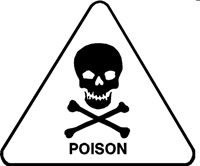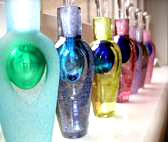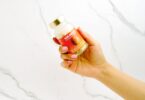Did you know that there are millions of people who experience unpleasant physical effects from scented products, such as perfumes, colognes and body lotions? Sometimes, it might be a headache or nausea when passing by a department store’s fragrance counter or riding in an elevator with someone wearing a certain fragrance. Fragrances in cosmetic products are common cause of acute allergies. They are delivered from petrochemicals and enter the body via absorption and inhalation.
Here are the staggering results of studies on fragrance:
The National Institute of Occupational Safety and Health has reported the fragrance industry uses up to 3000 ingredients, predominantly synthetic; approximately 900 were identified as toxic.
Studies done by Health Magazine show 2600 fragrance chemicals are currently listed under the catchall term “perfume”.
Perfumes may produce toxic and, more often, allergic respiratory disorders (asthma), as well as neurological and coetaneous disorders. Source: French Toxicology Journal, Ann Dermatol Vernerea, Vol. 113, ISS I, 1986 P.31-41
In 1986, The National Academy of Science targeted fragrances as one of six categories of chemicals given high priority status for neurotoxicity testing. The results show 95% of chemicals used in fragrances are synthetic compounds derived from petroleum. They include benzene derivatives, aldehydes and many other known toxics and sensitizers, which are capable of causing cancer, birth defect and central nervous system disorders and allergic reactions.
A 1988 study by the U.S. House Subcommittee and the Business Opportunities, chaired by Ron Wayden (D.OR) and the Natural Institute of Occupational Safety and 
A 1991 report by the Environmental Protection Agency detected the chemical Toluene in every fragrance sample; Toluene not only triggers asthma attacks, it is known to cause asthma in previously healthy people.
Some chemicals found in fragrances are known to be neurotoxic; they are classified as airborne contaminations. Benzyl Chloride, used in manufacturing perfumes, is a central nervous system depressant, intensely irritating to the eyes and mucous membranes. * Source: Neurotoxins: at Home and Work Place (Report by Committee on Science and Technology. US House of Representatives, September 16, 1986), pages 99-827.
While the law requires cosmetic and personal care companies to list chemical ingredients on their products, a loophole allows them to use the catch–all term ‘fragrance” without having to describe what’s in it.
To put your health in your hands at least in regard to fragrances you have an option. Choose home and beauty products scented with pure essential oils, they are delivered from distilling botanicals, have been used for centuries to scent the body and the home, while subtly altering our emotional and physical state. Just smelling essential oils you can feel uplifted or energized. They have a long history of safe use and they are not composed with chemicals like artificial fragrances. (For allergy reasons always, patch test before use: pregnant or nursing women and any one with illness should consult medical and/ or aromatherapy professional before using this scent). They are few cosmetics companies that use a pure essential oils instead of fragrances to scent their personal care products. One of them is Zorica of Malibu that can be found in health food stores and spas, and you can also order from their site.
The final conclusion from all of this compelling information is that, it truly is up to each one of us to educate ourselves, listen to our bodies when trying a new product, and know that one women’s perfume could be another women’s poison. You can still smell beautiful, have soft skin and take care of yourself if you use natural, nontoxic, chemical-free products.
For more information go to www.ehnca.org and click on the old site.
To find out what dangers are lurking in your skin care products, check out Skin Deep: Cosmetic Safety Database by Environmental Working Group.









